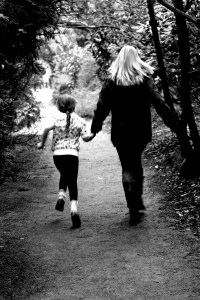|
Obviously it’s hard to get outside- as much as we want. What can we do? Ideas include:
Bring the outdoors in. Create safe places to play outdoors. Encourage outdoor play – especially unstructured play. Play outdoors ourselves Support initiatives to provide and use green spaces in your neighborhood, at your schools, parks and city.
Put Plants in Your Spaces
Perhaps the easiest way to start getting some “vitamin G” is to have green plants in your home. Having plants in your home and work spaces helps you be healthy and alert.
- “A study at The Royal College of Agriculture in Circencester, England, found that students demonstrate 70 percent greater attentiveness when they’re taught in rooms containing plants. In the same study, attendance was also higher for lectures given in classrooms with plants.” www.bayeradvanced.com/articles/5-benefits-of-houseplants
Having plants is a great way to introduce life into your home. Think of plants like they are pets. In many ways better than a pet; when was the last time a dog improved the air quality of a house? Plants are alive. If you, the parent, are taking care of the plants you are modeling that you care about plants and the benefits they provide. You’re showing that you care about nature. You might encourage your children to be involved. Perhaps they would like to keep a plant in their room or help with the care of your family plants. Everyone benefits from having plants around. Might be a chance to encourage a direct involvement with another life form.
Create safe outdoor spaces
Safety is important. Unfortunately, the world seems a little scarier than it did a few years ago. The fact that young teens are on the web and on their phones has led to an increase in exploitation of this age group. Think chat rooms, and applications like SnapChat. This is technology driven. The outdoors is as safe as it has always been. Now when a child is reported missing practically anywhere in the world, you know it in an instant. The United States has the Amber Alert system. News is everywhere. A few years ago, news was not as pervasive. The point being that today we hear a lot more news, mostly bad, and some things seem worse when statistically they may not be.
In any case safety is important. You, parents, want to know your children are safe. Ideally you will have green space around your house where your children can safely play. (See Catching Bugs ). Safety considerations include overheating or frostbite, stings and bites, water dangers, sunburn, rashes and stranger safety. Don’t forget the benefits. Look back over the list of potential benefits and the safety issues won’t seem so daunting.
Encourage Outdoor Play
Get your kids outside. We love technology. Computers, tablets, smartphones, even TV have benefits of their own. Your kids will get their screen time. So TURN OFF THE TV computer, tablet, … and send them out into the cold cruel world. Get them outside where nature is.
It’s only dirt. Make sure your adventurers have clothes that are appropriate. Let them, heck expect them to get dirty. Figure out the right clothes to make it easier for them, and you, be in and enjoy the outdoors.
- “[There are] cognitive benefits from play in nature, including creativity, problem-solving, focus and self-discipline. Social benefits include cooperation, flexibility, and self-awareness. Emotional benefits include stress reduction, reduced aggression and increased happiness. Children will be smarter, better able to get along with others, healthier and happier when they have regular opportunities for free and unstructured play in the out-of-doors.” Hillary L. Burdette, M.D., M.S. - childrenandnature.org/downloads/CNNHealthBenefits2012.pdf
Be outside yourself
Be in your safe green spaces yourself. Explore the backyard with them. Take them on a walk. Go to the park. Be interested in what you see: insects,  plants, birds, flowers, trees. When you are with them (1) you get the benefits of being in nature (2) you are their safety buddy (3) it’s one-on-one time with them. plants, birds, flowers, trees. When you are with them (1) you get the benefits of being in nature (2) you are their safety buddy (3) it’s one-on-one time with them.
Support Nature and Green Initiatives
People and groups are realizing the benefits of nature and natural environments. There is likely a group in your neighborhood, school district, or city that is working to establish and enhance green spaces. New parks are great. Especially if they are close to where you live. Smaller projects you can lead or do yourself can be effective.
Create a garden at your apartment complex or school. Raised garden technology makes it possible for gardens to be started practically anywhere. Gardens (see Gardening) are a great way to get outdoors and learning about life and applying their learning. Photosynthesis is real when you see it happening. Multiplication makes sense when you use it to understand how big your garden or plant boxes are. Ratios and percents are applied to what and where and how much gets planted. That’s just one idea. Look for opportunities to create or make a place safe for kids to play in nature.
|